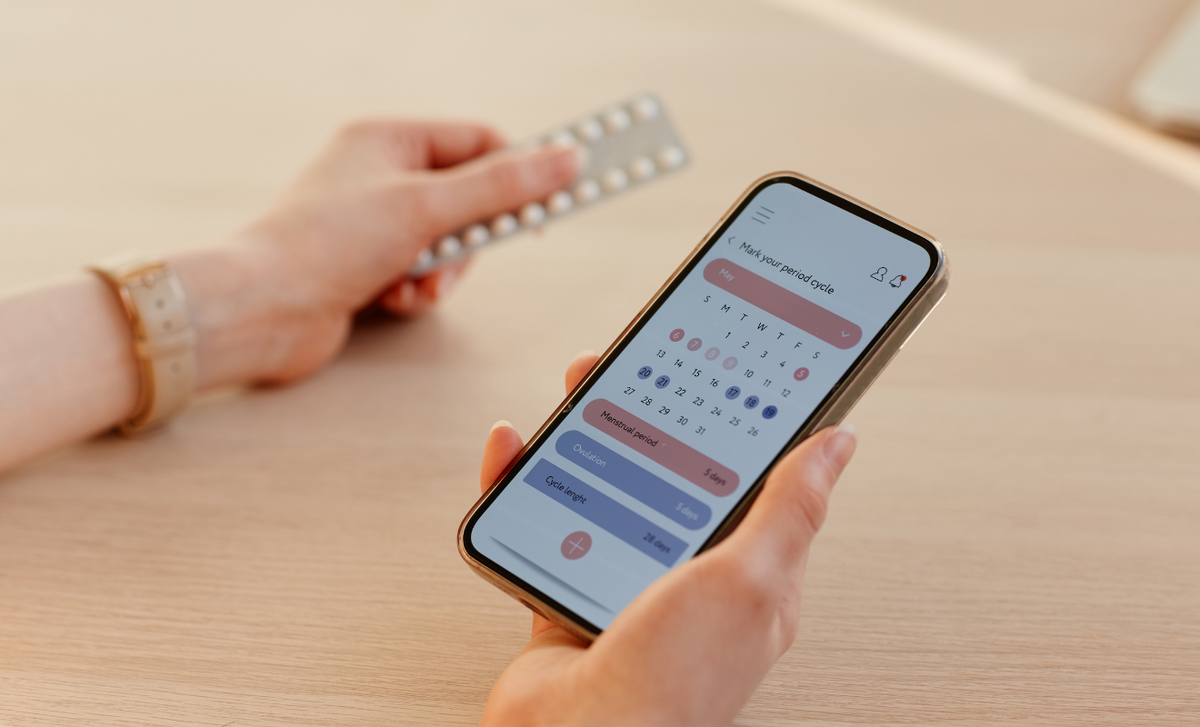
First period after birth: When to expect it & what's normal
|
|
This article may contain affiliate links, which means we may receive a small commission, at no cost to you, if you make a purchase through the link. We only recommend products we trust and believe will be beneficial to our readers.
You've welcomed your little one, survived the initial sleepless nights, and are finding your new rhythm. But amidst the beautiful chaos of early motherhood, you might be asking, "how long after birth do you get your period?" It's a question every new mom has, and the answer can bring both relief and a little apprehension.
Let's explore everything you need to know about your first period after birth and what the return of your postpartum period really means.
In this article
Your body just did something incredible. After delivery, your hormones are on a mission to restore balance. So, when will your first period after baby decide to show up?
Typically, your period can return anywhere from six weeks to several months after giving birth. The timing varies widely and is heavily influenced by factors like your hormone levels and, most significantly, breastfeeding. While some women report their cycle returning around the 6-8 week mark, others may not see it for much longer. There's no hard-and-fast rule, so try not to compare your timeline to someone else's. Your body has its own unique recovery schedule.
For those who are breastfeeding, the return of your menstrual cycle is often delayed. This is because of prolactin, the hormone responsible for milk production, which also naturally suppresses ovulation.
If you are nursing exclusively around the clock, you may not see your period until you reduce the frequency of nursing sessions or introduce solid foods. However, if you're supplementing with formula or pumping less frequently, your postpartum period might kick back into gear sooner. Remember, every body is different!
How will you know if your cycle is about to make its grand return? Your body usually drops a few hints. Look out for these common signs your period is coming back postpartum:
Increased vaginal discharge
Mild cramping or lower back pain
Mood swings and increased emotional sensitivity
Acne breakouts
Light spotting
Just when you thought you were done with hormonal rollercoasters, they're back for an encore!
Be prepared: your first period after birth may not be like your cycles from before pregnancy. It’s common to experience some changes as your body recalibrates:
Heavier or lighter flow: It could be much heavier than you're used to or surprisingly light.
Increased cramping: You might notice more intense cramps.
Irregular timing: Your first few cycles may be unpredictable before settling into a regular pattern.
Don’t panic, this is usually your body's way of getting back into its groove.
Navigating your first cycle after baby can be smoother with the right supplies. Here are some highly-rated favorites to consider:
Super absorbent yet thin, these are great for handling a heavy postpartum flow comfortably.
Known for its comfortable seamless fit, this highly absorbent option offers reliable, leak-proof protection that feels like everyday underwear.
Continuing a postnatal vitamin can support your nutritional needs, especially if you are breastfeeding and your body is restoring nutrients.
Here’s a crucial fact: you can get pregnant before your period returns. Ovulation occurs before menstruation, meaning you can be fertile without even realizing it. If you're not planning another pregnancy right away, it's essential to discuss birth control options with your healthcare provider.
When should you chat with your OB-GYN or nurse practitioner? If you experience:
Extremely heavy bleeding (soaking through a pad every hour)
Severe pain or cramping that isn't managed with over-the-counter medication
Fever or other signs of infection
The absence of your period for more than three months after you stop breastfeeding.
Never hesitate to seek personalized medical advice.
The return of your postpartum menstrual cycle is a milestone in your recovery journey. It’s a sign that your body is healing and adapting. Be patient, listen to what your body needs, and keep an open dialogue with your healthcare provider.
It typically returns between six weeks and several months postpartum. This timeline is significantly influenced by whether or not you are breastfeeding.
Yes, the hormone that promotes milk production (prolactin) also suppresses ovulation, which often delays the return of menstruation.
It can be. It's normal for your first postpartum period to be heavier, with more intense cramping and an irregular schedule as your body adjusts.
Absolutely. Ovulation happens before your first period, so it is possible to become pregnant. Use contraception if you are not trying to conceive.
Comfortable, highly absorbent pads, leak-proof underwear, and a quality postnatal vitamin supplement.
References
American College of Obstetricians and Gynecologists - Optimizing Postpartum Care
WebMD - First Period After Pregnancy
Healthline - First Period Postpartum
The content on Awaiting the Stork™ is for informational purposes only and is not intended as medical advice, diagnosis, or treatment. Always consult with a qualified physician or healthcare professional to address your unique health needs and circumstances.